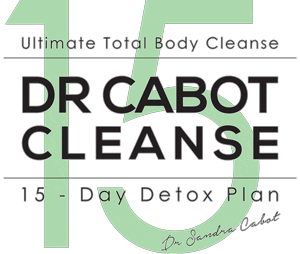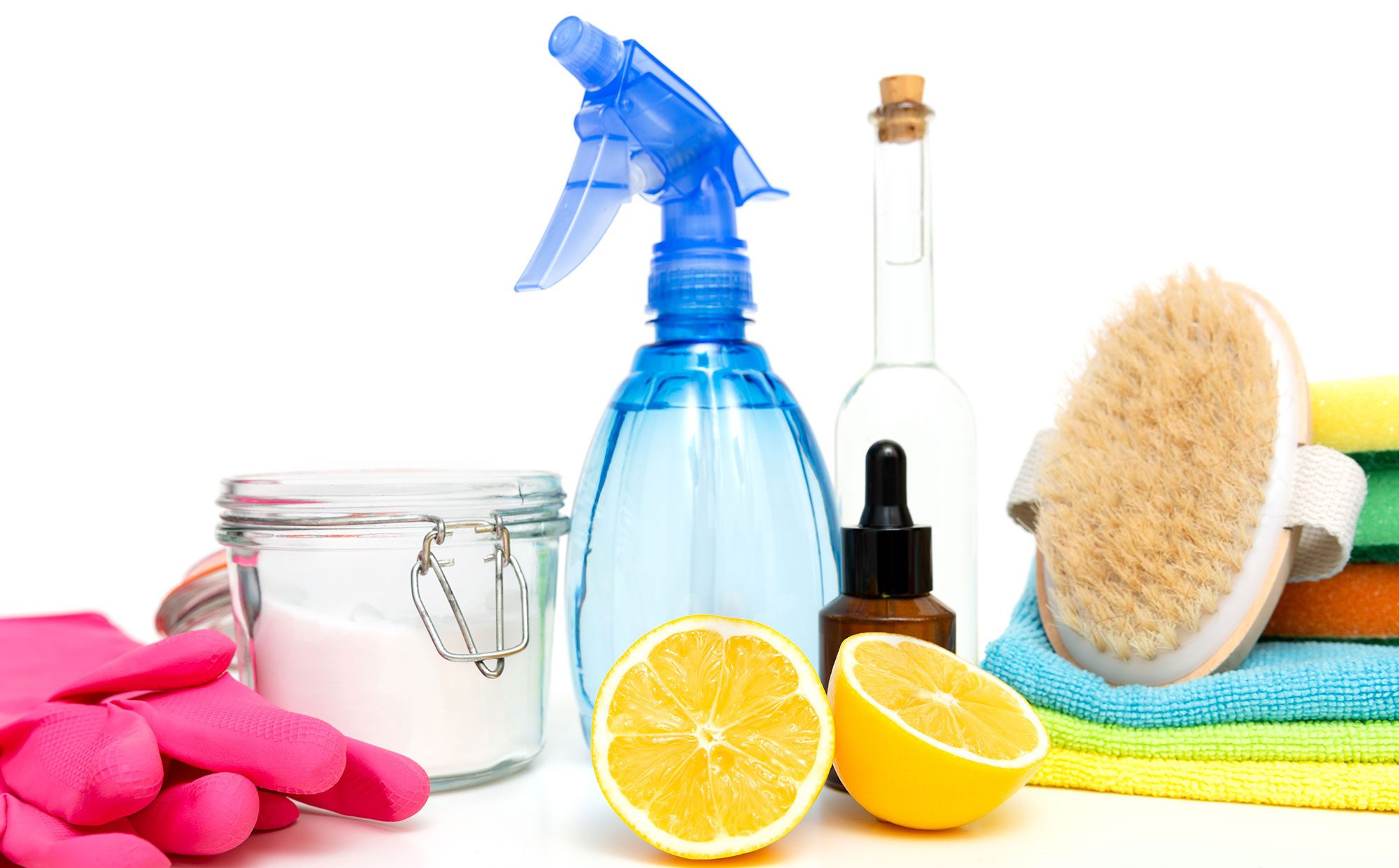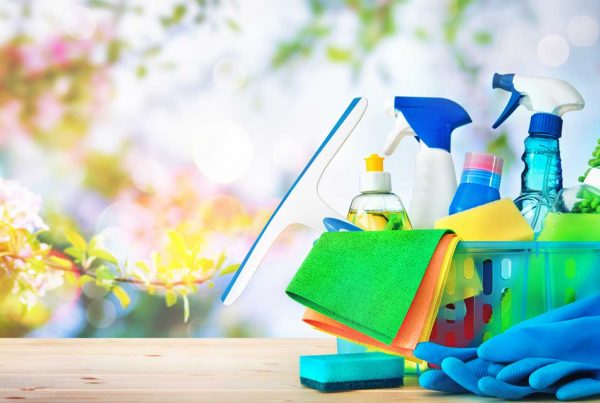The Top Tips To Detoxing Your Kitchen
By Louise Belle BHSc (Nut Med)
Our bodies are bombarded with an immense number of chemicals and toxins each day. We are hit from every angle and our livers take a massive beating. The liver is responsible for filtering out all these harmful chemicals before they cause damage to the body. The liver can become overwhelmed and as a result, toxins start to build up, wreaking havoc and causing inflammation and damage to your cells, tissues and organs. Detoxing your kitchen is a great way to reduce your overall toxic load.
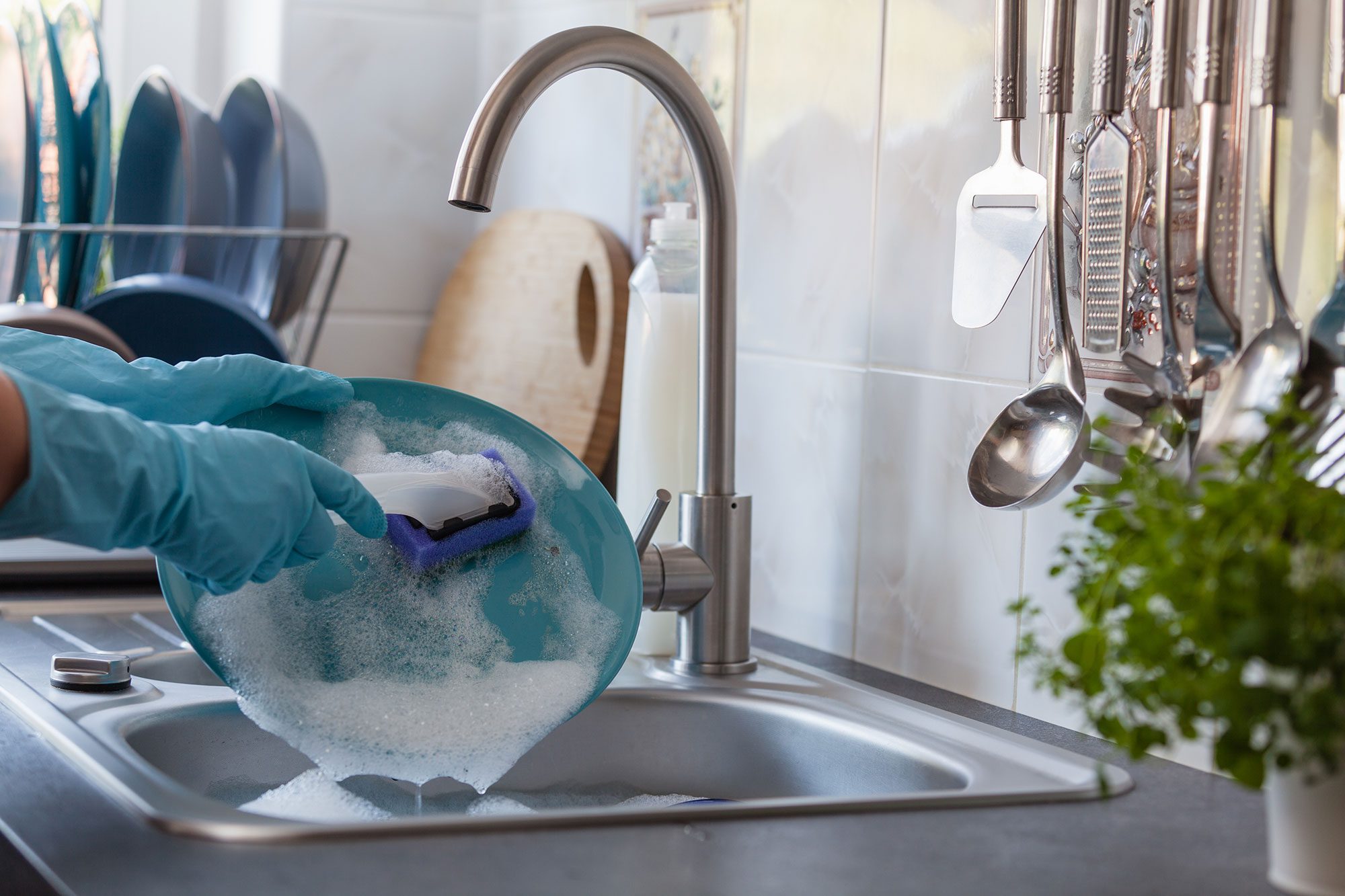
Dishwashing Liquid
Common dishwashing detergents contain chemicals such as petrochemicals, solvents and perfumes, that enter our waterways and linger on our plates and glassware. These chemicals can act as xenoestrogens, mimicking the effect of oestrogen in the body and leading to hormonal disruption. They also emit chemical vapours such as xylene, which are inhaled through the steam of the sink, and can suppress the immune system. Try making your own or opting for a natural, chemical-free version to reduce your toxin exposure.
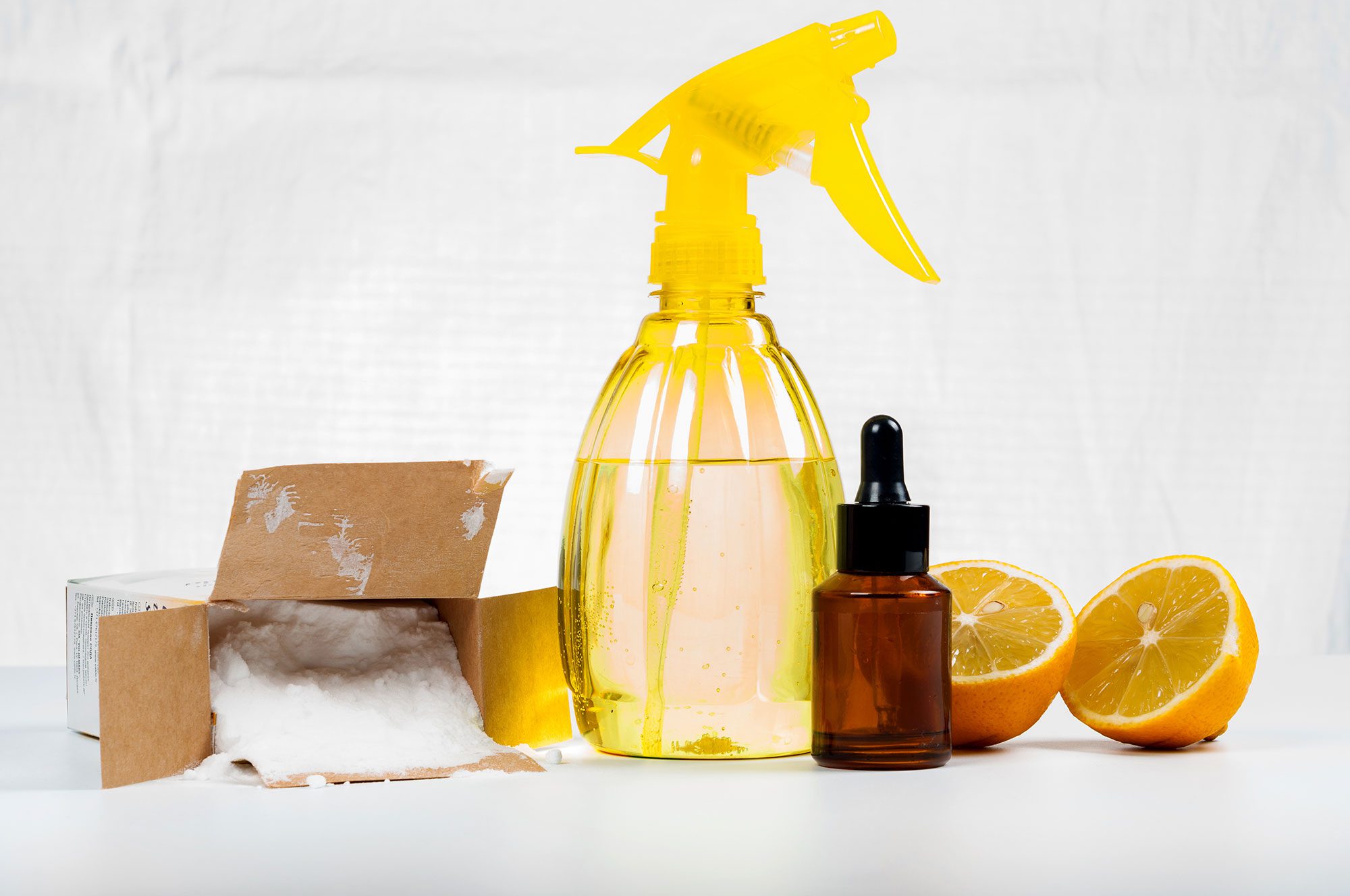
Cooking Oil Spray
Have you ever read the label of your cooking oil spray? Your cooking spray most likely contains ‘propellant’, often in the form of propane, butane and nitrous oxide. This is a flammable substance that you shouldn’t want to be putting anywhere near your food. Although seen as safe in small amounts, over time who knows what type of damage it could cause. Try buying a spray bottle and filling it with your favourite healthy oil, to use in replacement of aerosol cooking sprays.

Bench Spray
The average person will spray their kitchen bench at least once a day to clean the dust, germs and food spillages. Did you know that conventional surface sprays contain nasty chemicals that can cause inflammation and damage to your lungs, kidneys and liver? You are absorbing these through your skin and lungs, and potentially through food that you sit on your nice ‘clean bench’. Try making your own spray with vinegar, essential oils, bicarb soda, and ditch the conventional chemical ridden products.
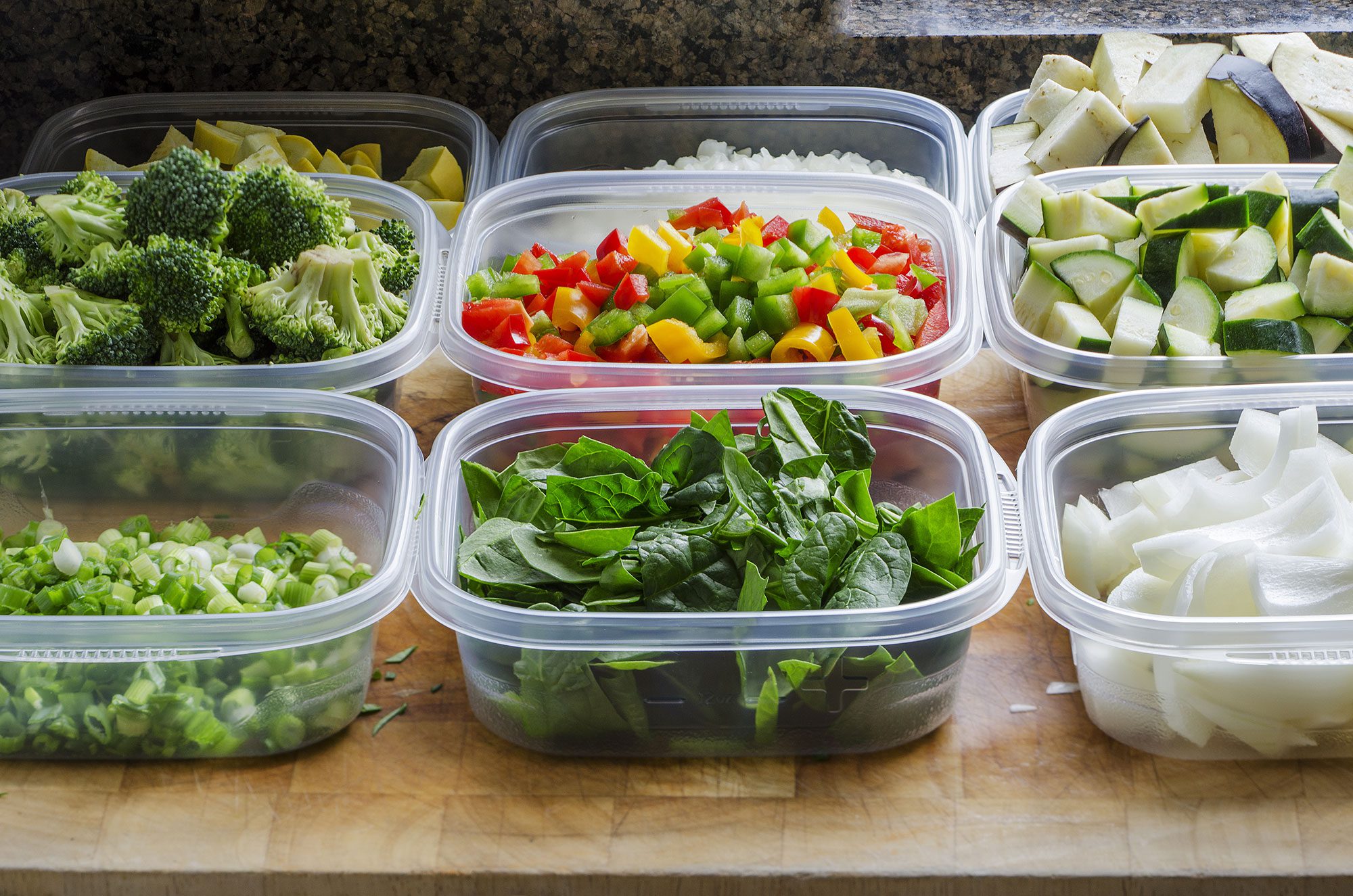
Plastic Containers/Cooking Utensils
Two commonly used chemicals in plastic containers include bisphenol-A (BPA), used to make hard, clear plastic and phthalates, used to soften plastic. These chemicals can leach into your food, particularly when exposed to heat. They have been linked with hormonal disruption and increased risk of heart disease and liver toxicity. Swap the plastic in your kitchen for stainless steel, glass, aluminium, ceramic or wood. If you need to use plastic, avoid heating it.
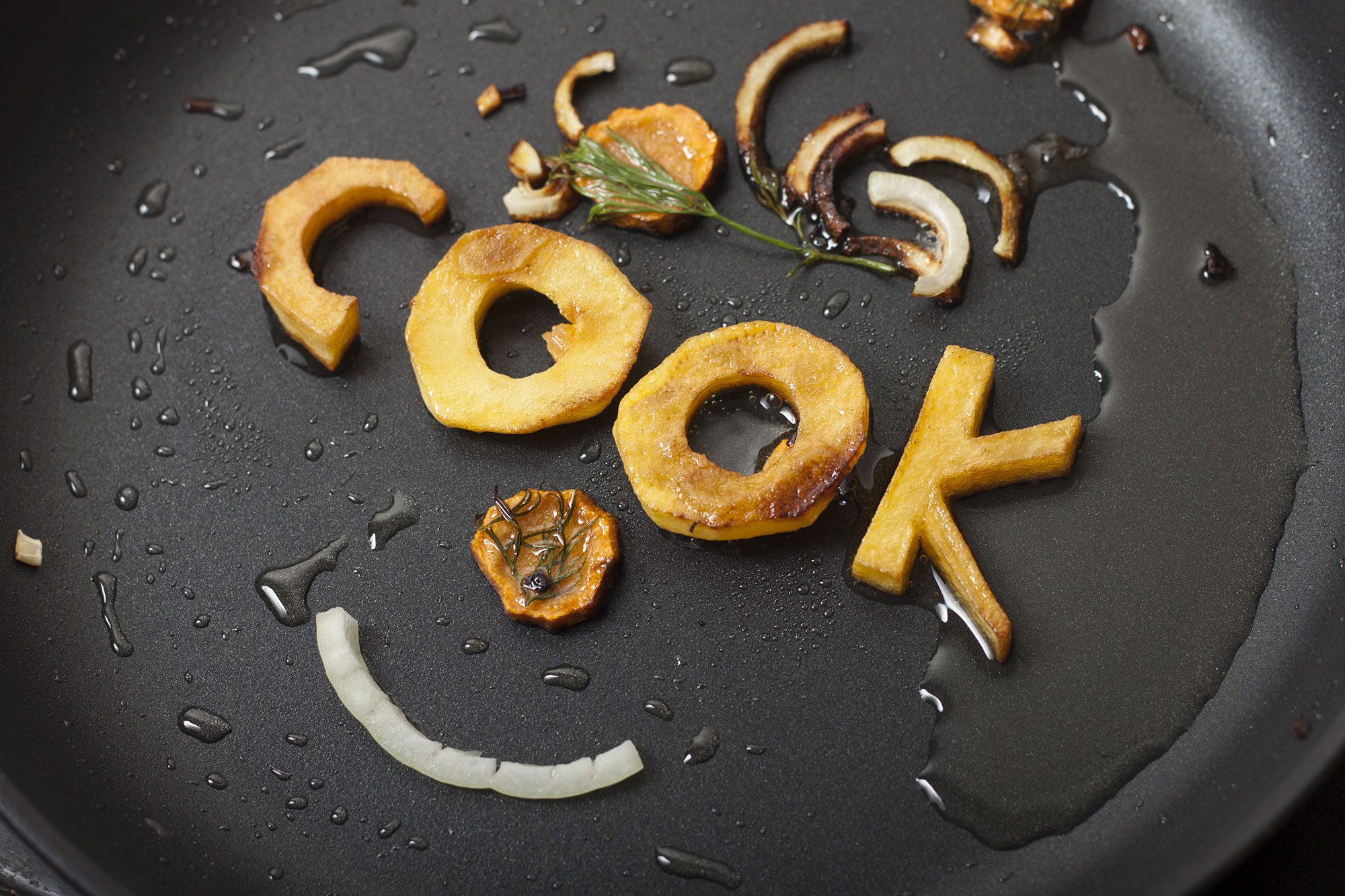
Non-Stick Frying Pans
Whilst non-stick pans are convenient and easy to clean, in order to make them non-stick, manufacturers coat them with a chemical called polytetrafluoroethylene (PTFE), more commonly known as Teflon. When heated at high temperatures, the coating breaks down and releases toxic particles and gases that can lead to headaches, nausea and other flu-like symptoms. Swap non-stick cookware for stainless steel pans, cast iron skillets or ceramic or glass bakeware.
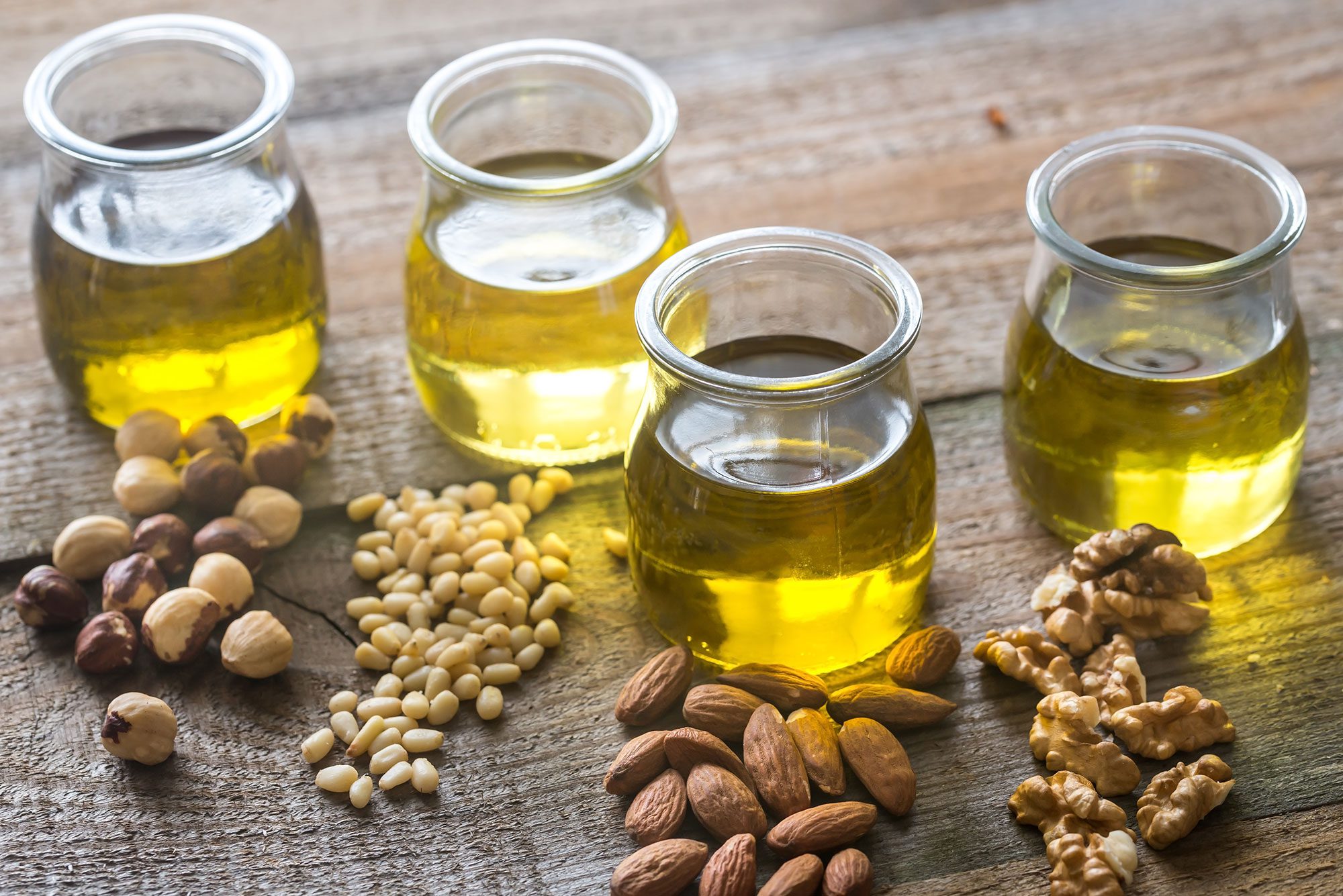
Vegetable Cooking Oils
Commonly used vegetable oils such as sunflower and sesame oil are classed as polyunsaturated fats. These types of fats are very unstable and can become rancid or oxidised when exposed to heat and oxygen (such as frying). They cause inflammation and free radical damage in the body, which can lead to a whole range of other problems, such as atherosclerosis (clogged arteries). Swap these for healthy oils, such as extra virgin olive oil, coconut oil, and avocado oil.
Removing these chemicals from your kitchen is the first step – think of this as a kitchen detox. The next stage is to do a cleanse, to remove all of the toxins and chemicals that are stored deep in your fat and muscle tissue. You won’t know how good you can feel until you detox your kitchen, and your body. Juicing is also an excellent way to receive antioxidants in a highly concentrated and absorbable form. There are some great recipes in Dr Cabot’s book ‘Raw Juices Can Save Your Life’.
